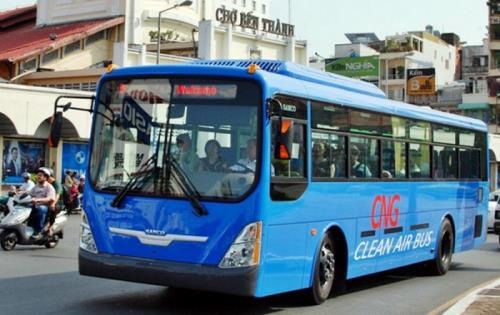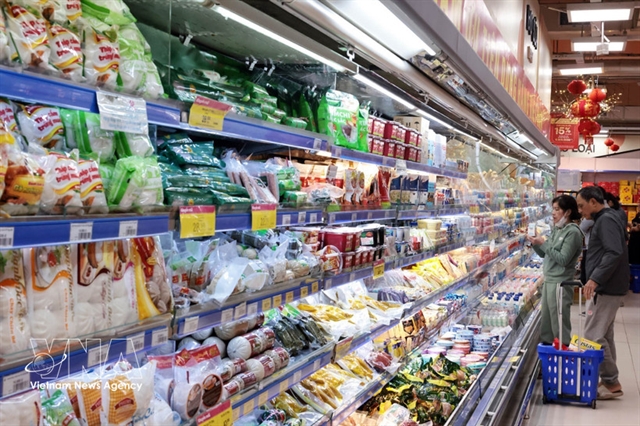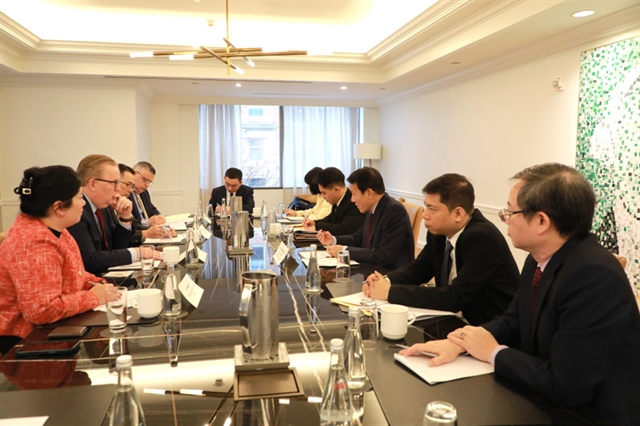 Society
Society

The HCM City Department of Transport has asked the city to increase subsidies for buses by VNĐ330 billion (US$14 million) each year as some bus drivers are facing a shortage of funds.
 |
| Compressed natural gas buses in HCM City. — VNA/VNS Photo |
HCM CITY — HCM City’s Department of Transport has proposed that the city People’s Committee increase subsidies for bus cooperatives by VNĐ330 billion (US$14 million) each year as they are facing a shortage of funds.
The city budget subsidises more than 1,300 buses, including 400 buses that specialise in serving workers and students.
The People’s Committee has assigned its Department of Finance to assess and propose solutions to the transport department.
At a meeting with the city People’s Council on Wednesday, Trần Chí Trung, head of the department’s Public Transportation Management Centre, said the city’s subsidy for buses totalled VNĐ1 trillion ($42.9 million) this year.
However, the amount is insufficient because transport companies and co-operatives have replaced 1,162 buses with new ones, including 352 compressed natural gas (CNG) buses.
Moreover, fuel prices and costs for hiring drivers and other staff for bus operations have also increased, but revenue from bus operations has not risen.
In the first six months of the year, more than 100 million passengers used subsidised buses in the city, a decrease of 8.4 per cent compared to the same period last year.
The drop in passengers was blamed on improper route planning, bus co-operatives’ poor management and operations, and traffic congestion.
Earlier, the city had developed a plan to provide a priority lane for buses on Điện Biên Phủ and Võ Thị Sáu streets, but that regulation did not begin until now, Trung said.
If motorbikes and cars continue to operate in the same lane, the bus system will not be able to develop well, he added.
The city has opened a modern terminal with an internet connection on District 1’s Hàm Nghi Street that serves 33 bus routes.
However, Cao Thanh Bình, deputy head of the city People’s Council’s board for economics and budget, said he did not agree with the subsidy request, saying that subsidies should be phased out in the future.
Nguyễn Lê Ninh, of the consulting council for environmental science and technology under the Việt Nam Fatherland Front, shared views with Bình, saying that bus co-operatives would continue to rely on the city’s budget if they received subsidies.
Small bus suggested
Of the city’s 10 million people, only two million travel by bus, Ninh said, adding that the use of large buses is wasteful and causes pollution.
Trung said the centre plans to pilot a mini bus programme, which will be submitted to the Department of Transport this week.
Under the plan, 350 buses with 12 seats each will run on 30 routes and will pick up passengers on alleys in districts 1, 10 and Tân Bình under a pilot programme.
The plan will start next year and is expected to help reduce traffic congestion and pollution, Trung said.
By 2020, public transport is expected to meet 16 per cent of the city people’s travel demand, according to the city. — VNS




